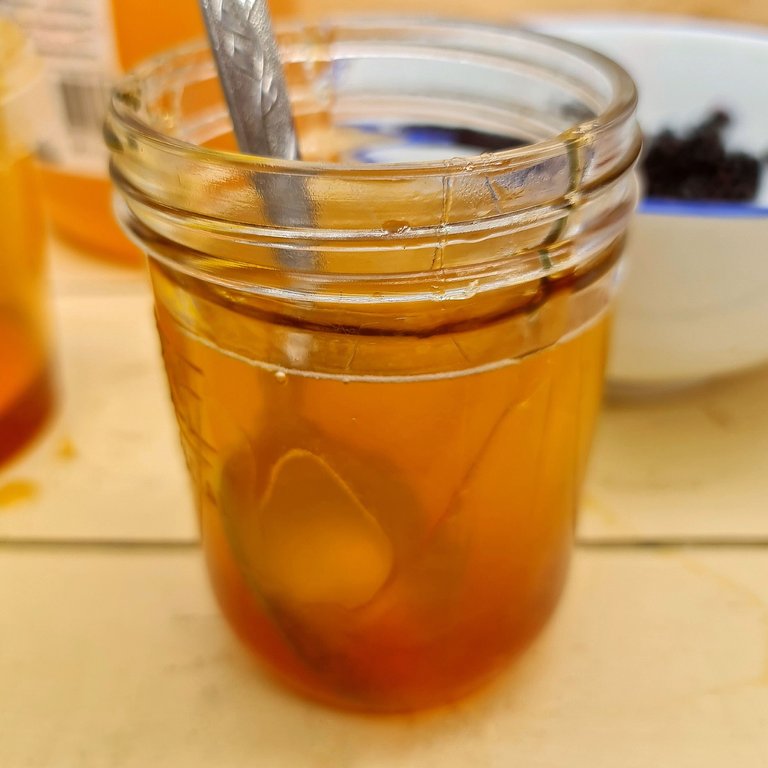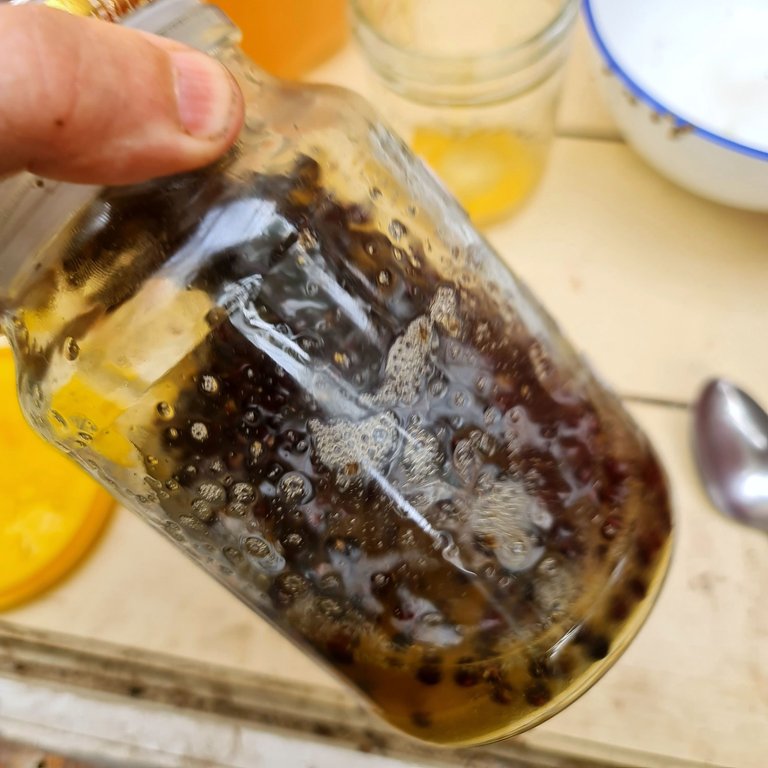I make a lot of tinctures for folks and ourselves but they’re time consuming to make and sometimes people just don’t drink alcohol.

Oxymels are the perfect substitute. They’re quick and easy to make and non-alcoholic too. They’re a method of extracting a lot of goodies from plant materials using a mixture of honey and vinegar.
The taste of an oxymel is gentler than alcoholic extracts, making them suitable for children over 4). There are lots of prohibitions in natural medicine about giving very young children honey, especially raw honey, so be aware of that.
Oxymels are excellent in cases of respiratory conditions and are simply wonderful for soothing sore throats. Thyme is one of the best herbs to take via an oxymel.
When youve got some experience in oxymel making, under your belt, you can adjust the final taste of the oxymel by adjusting the ratio of honey to vinegar. You’ll find your favourite ratio through experience.

To make a basic oxymel
- Prepare your herb
- Mix vinegar and honey at a 1:1 ratio
- Stir well or shake vigorously
- Add the herbs at around 75% of the honey : 25% vinegar mix (by volume).
- Seal the jar and shake well.
- Shake well daily (or almost daily) for 4 to 6 weeks and keep somewhere warm.
- If the mix gets too cold, you might see the honey settling out. That’s no problem, just stir it back in.
- Strain, press, filter bottle and label.
- This should store for up to 6 months.


If you’re using fresh honey and home made Apple Cider Vinegar, you are using a living brew. It could produce carbon dioxide through a limited fermentation process, so leave your kid a little loose for the first week to allow the gas to escape. It should settle down after that time.
If you’re using store bought or commercially prepared vinegar, you won’t have to do this. Here’s a link to our page on making your own Apple Cider Vinegar at home.

Extracting in boiling vinegar
Some harder, woody herbs can benefit from being boiled in vinegar for a while to soften them up and extract some of their goodness. This technique can be used for most tougher herbs but is perfect for bark, pods, seeds and roots, especially when they’ve been dried.
To perform this technique -
- Cover the plant material in a pot at the ratio of 2 vinegar : 1 plant material
- Optionally, you can leave this to soak for a few hours or overnight
- Bring the mix to a boil
- Reduce the heat and simmer gently to evaporate the vinegar until you have approximately 1/2 the original volume
- Allow to cool
- Strain, press and filter the cooled mix
- Add honey at a ratio to your taste (I use 2/3 vinegar to 1/3 honey).
- Bottle, label and store. It should store for 6 months in a cool, dark place.
Caution: Boliing ACV vapour can be very strong and intense, so avoid getting your face over the pot.
If you’ve already extracted in vinegar and honey separately
You can combine existing extracts if you’ve already made them with vinegar or honey by mixing the two at a 1 : 1 ratio. Then bottle, label and store.






